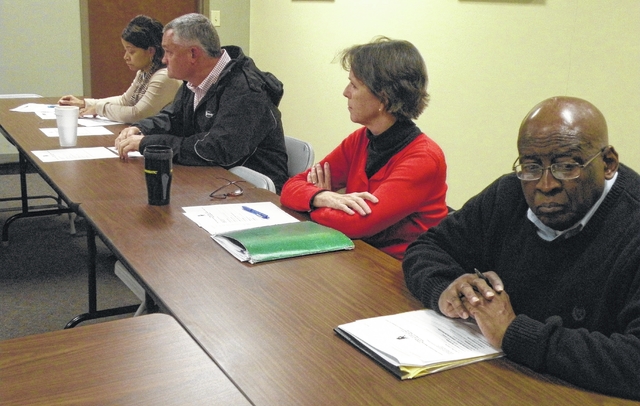Clinton City Schools board members are closer to agreeing on what changes need to be made to the system’s Academically and Intellectually Gifted plan that was presented by committee members at the November and January meetings.
Following last week’s presentation of the second reading of the plan, board members decided to meet for a discussion session Tuesday morning, allowing board members time to sit down as a group and discuss wishes they each have for the 2016-2019 plan.
Board members expressed their concerns during last week’s meeting, after the AIG specialists presented the second review of the plan with no changes made from the original plan, citing they felt their recommendations weren’t being heard and addressed.
However, individual wishes for the plan continue to remain cloudy, as none of the five board members present at Tuesday’s meeting made any definite statements as to exactly what details they would like to see adopted by the board. Everything discussed Tuesday was just a “consideration” the board wants the team to address.
Board members pulled together to compile a list of recommendations to be made to the AIG team, after the team requested feedback from members.
The board’s first recommendation is to offer third grade resources in addition to content replacement for AIG students at that grade level.
“I guess we need to reiterate that was something we asked them to consider, they saw our recommendation and they carefully considered it and thoroughly looked at all the ramifications and it’s not what they want,” board member Diane Viser shared during Tuesday’s meeting. “We can remind them it’s something we want to consider, but if in reviewing it a second time, they say they don’t want that, it’s long past time that we accept that.”
Viser shared the same opinion during last week’s meeting, advising that the board has put their trust and faith in the team of specialists and whatever recommendations the team made, should be what the board approves.
“They bring a lot of knowledge and expertise to the table,” Viser added.
The topic that has brought the biggest debate among the AIG team and the board, is the decision to begin offering K-2 pull out AIG services, rather than a nurturing program. This would mean students are tested in kindergarten for initial placement in the program and retested at the end of second grade for placement in third grade content replacement.
“We have allowed them to do the nurturing program at the K-2 level and it hasn’t worked,” board member Georgina Zeng said. Zeng was conferenced into the meeting via telephone. “If they would come up with another plan, maybe that would be better.”
Board member E.R. Mason then asked if the board could get some feedback from Dr. Mark Duckworth, associate superintendent for curriculum and instruction and Dr. Stuart Blount, superintendent.
“We need some input from Dr. Duckwork as far as the pros and cons,” Mason shared. “We need how he feels and how the teachers feel about the different recommendations that we’re giving.”
Both men said they had no comment at this time.
According to Viser, the professional standard for testing for gifted placement is age 8. If Clinton City Schools accepts testing at the kindergarten level, they will be testing children who are five, six or seven years old.
“Labeling a kid when their school is just beginning is risky, and unnecessary,” Viser said.
Board members Viser and Randy Barefoot took a clear stand and said they were both against testing at the kindergarten level and pulling those students out for AIG services.
“Personally, I don’t like pulling out kids at that age,” Barefoot said. “Kids start feeling like they are smarter than others.”
Board chairman Jason Walters feels the rotational method used several years ago touched more children, but didn’t produce an accurate number of gifted students.
Additionally, the board would like for the AIG team to revisit the idea of having a second tier of AIG services for students who almost meet the testing requirements, enabling the AIG classes to have a larger class size.
The board is asking team member to consider requiring AIG resource to be a graded class and modify the K-2 services so that the plan for teachers providing professional development is better laid out.
According to Viser, only six to 10 percent of the population should be identified as AIG. In Clinton City Schools, approximately five to six percent have been identified.

